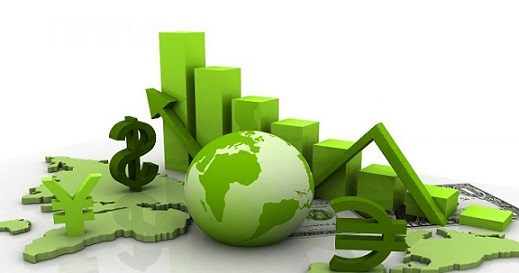By Dr Bhabani Shankar Nayak
LONDON:The pandemic driven lockdowns have triggered worldwide growth of unemployment, hunger, homelessness and poverty. The speed of economic descent in world economy is extraordinary. The world is sleep walking into greater economic depression of the century and its impacts will reverberate for decades. The COVID-19 pandemic led economic crisis has been used by ruling and non-ruling classes to reconfigured the world economy to consolidate their wealth and punish the masses by spreading economic risks, insecurities and crises. The credit and consumerism led economic booms are no longer relevant strategies even for the short-term economic recovery due to inherent decline of trust of the masses on the existing economic and political institutions within capitalist system.
The economic and political institutions within capitalism have lost their legitimacy in public eyes during this pandemic. The foundation of production, distribution, exchange and consumption are four pillars of any economic system irrespective of their ideological orientations. These four economic pillars survive on the foundation of trust. All economic activities run on the basis of trust. The level of trustworthiness determines economic revival and sustainability in all economic systems.
The deepening of capitalism and its deceptive culture of propaganda for last three centuries has eroded trust in the society, politics and economy. Trust in society is a product of interdependence whereas trust in an economic system is a production of free and open interaction between consumers and producers. The growth of capitalism led to the separation of producers from consumers, which led to the declining of the culture of trust in economy. The fourth industrial revolution led by digital capitalism has further eroded trust in economy by structurally delinking producers from the consumers.
The consumerism as a project of capitalism has completely transformed economic trust into brand trust. The trust in system is transformed into trust in commodities (brands) based on its advertisement, brand value, peer acceptance and social visibility and respect. The culture of consumerism and advertisement has personalised trust. But leverage of trust in businesses and economic systems has declined over time due to the fact that trust is mutual and collective. It cannot be personalised. The corporatisation, individualisation and personalisation of trust is diminished trust.
The culture of forgery is rampant with the growth of digital business, which further accelerated the decline of trust even on the bands (personalised trust based on class). The banks used to be the only economic institution within capitalist economic system, which was trusted by public. But the scandals of the Wall Streets and continuous failure to protect the consumer interests in different economic crises led to fall of trust on banking systems within capitalism.
The devaluation and demise of trust led to the declining of abilities of various public and private institutions dealing with economic crises. The consumers and producers feel vulnerable due to lack of trustworthiness and transparency with the growth of digital revolution in economy. So, the short term and long-term economic recovery depends on revival of trust in economic and political institutions. It demands total systemic change and disengagement with capitalism as a system and its distrustful culture of plunder in which every producer and consumer experienced deception.
Is there any way to revive public trust in economic and political institutions? Can trust be rejuvenated and re-established? Is trust building possible in the post pandemic world? The answer to these questions is emphatically positive. There is no other answer. Trust each other to survive in peace and prosperity or perish together with the culture of distrust spread by capitalism.
The digitalisation of world economy for last three decades has entered into every aspect of economic systems. The reversal or dismantling of digital economy is neither possible nor a progressive alternative. It is important to democratise and develop cooperative models of digital economy, where the producers and consumers can participate with egalitarian openness. The direct interaction between producers and consumers can create a socially embedded market and economic system based on trust, which can ensure a sharing and caring economy free from institutional exploitation.
The experience of the Mondragon Corporation as an alliance of worker cooperatives based in the Basque region of Spain offers an alternative. The core of the Mondragon success story is based on trust; the trust between producers and consumers. The sustainable trust within the Mondragon corporation is established by its workers, who are the shareholders. The corporation is owned by the workers and managed by the workers. Therefore, trust was an organic development based on direct interaction of workers both as producers and consumers.
Such alternative experiments are completely ignored and concealed by the mainstream media; the voice of capitalism. The data driven digital economy within contemporary capitalism promotes devaluation of trust by controlling individual data on every aspects of individual lives. There is no dignity and privacy when individual data is controlled by corporations without any form of inhibition.
The capitalist systems have also formed alliance with reactionary religious and politically authoritarian forces to further control individual freedom. It intends to use reactionary aspects of religions, cultures, nationalisms and communities to enforce trust in economic and political system. Such attempts create superficial and short-term trust. It is the material conditions of people that determines the level of trust in long term. The development and enforcement of trust cannot be outsourced to reactionary religious and political forces. Trust grows organically, it cannot be reproduced by propaganda and enforced for a long time by these forces. The growth of fake news and false propaganda about products in the market and policies of the government has further eroded the culture of trust in economy and politics.
The centralisation of data driven and data dependent digital capitalism is accelerating treacherous world economy free from trust. The loss of citizen’s trust on state and governments, loss of consumer’s trust on products, and loss of producer’s trust on markets create a state of anarchy, which helps for the growth and consolidation of security state and authoritarian governments concomitant with the requirements of the capitalism.
Such an economic and political project has failed in history. Its failure is immanent but its social and humanitarian cost is incalculable. Therefore, it is imperative for all thinking beings to work collaboratively towards trustworthy social and economic transformations based on mutual and collective trust. It is collective trust that helps in the mobility of both labour and capital without creating barrier for each other. It is mutual trust which can aid the economy to revive its global momentum without capitalism. Trust is the non-transactional new currency with both use and exchange value. The revival of trust in economy and politics is the answer to the multiple forms of capitalism crises. Trust is important for long term peace and prosperity.
(The Writer Dr Bhabani Shankar Nayak is a Senior Lecturer in Business Strategy, Coventry Business School, Coventry University, UK, The views expressed are personal).






























